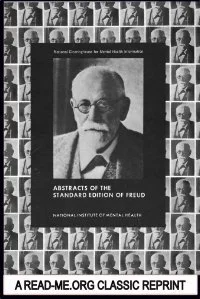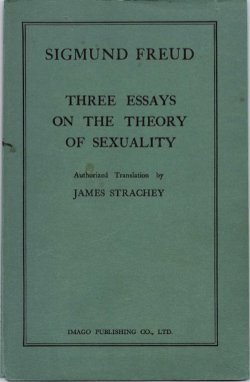By Sigmund Freud.
Authorized Translation by James Strachey. From the cover: This is the firs tEnglish edition of a classic. In the forty-five years since its original appearance it has completely revolutionized scientific views on sexuality. Freud's discoveries, derived from his penetrating study of his patients and concisely summarized in these Three Essays, are now accepted as the basis of all modern thought on the subject in psychology, psychiatry, education and criminal reform. "One of the pillars on which the edifice of psycho-analysis rests. . . indeed a classic." The Listener.
London. Imago Publishing Company, Limited. 1949. 130p. CONTAINS MARK-UP







